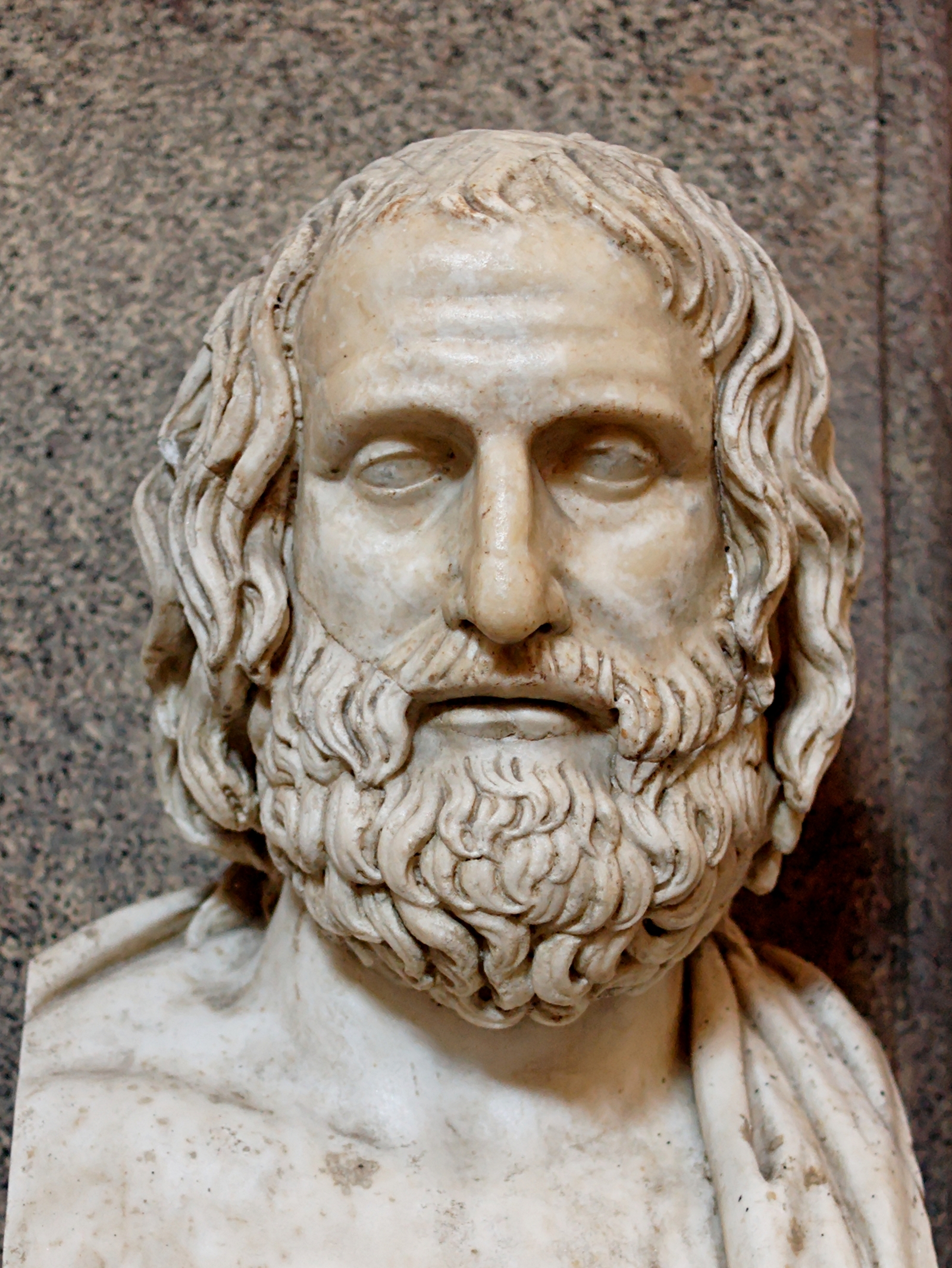Euripidés Berühmte Zitate
Euripidés Zitate und Sprüche
„Die Zeit entlarvt den Bösen.“
Hippolyt 428 / Phädra
Original altgriech.: "Κακοὺς δὲ θνητῶν ἐξέφην' ὅταν τύχῃ."
„Du zählst im Elend keinen Freund.“
Elektra 1131 / Elektra
Original altgriech.: "πένητας οὐδεὶς βούλεται κτᾶσθαι φίλους."
„Ein guter Mann wird stets das Bessre wählen.“
Iphigenie in Aulis, 502f / Menelaus
Original altgriech.: "ἀνδρὸς οὐ κακοῦ τρόποι // τοιοίδε, χρῆσθαι τοῖσι βελτίστοις ἀεί.."
„Ein vorsichtiger ist besser als ein waghalsiger Heerführer.“
Die Phönizierinnen 599 / Polyneikes
Original altgriech.: "ἀσφαλὴς γάρ ἐστ' ἀμείνων ἢ θρασὺς στρατηλάτης."
„Ob einem reiche Totengabe wird zuteil, das ist nur eitle Prahlerei der Lebenden.“
Die Troerinnen 1249f / Hekuba
Original altgriech.: "εἰ πλουσίων τις τεύξεται κτερισμάτων· // κενὸν δὲ γαύρωμ´ ἐστὶ τῶν ζώντων τόδε."
„Sei bei mir, in Maßen zwar, doch verlasse mich nicht.“
über den Wein, gemäß Plutarch Moralia, Vorschriften zur Gesundheit, Kapitel 19
Original altgriech.: "εἴης μοι, μέτριος δέ πως // εἴης μηδ´ ἀπολείποις."
Euripidés: Zitate auf Englisch
Bellerophon, Fragment 298; quoted in Plutarch's Morals : Ethical Essays (1888) edited and translated by Arthur Richard Shilleto, p. 293
“The credit we get for wisdom is measured by our success.”
Quelle: Hippolytus (428 BC), l. 701, translated by Edward P. Coleridge
“Slow but sure moves the might of the gods.”
Bacchæ l. 882
Variant translation: Slowly but surely withal moveth the might of the gods.
“I begin by taking. I shall find scholars later to demonstrate my perfect right.”
Supposedly in The Suppliants.
Also attributed to Frederick the Great of Prussia.
Disputed
“I know, indeed, the evil of that I purpose; but my inclination gets the better of my judgment.”
Quelle: Medea (431 BC), Line 1078
Sisyphus as translated by R. G. Bury, and revised by J. Garrett
“A second wife is hateful to the children of the first; A viper is not more hateful.”
Quelle: Alcestis (438 BC), l. 309
“Of all things upon earth that bleed and grow,
A herb most bruised is woman.”
Quelle: Medea (431 BC), Lines 230–231 in Gilbert Murray's translation ( p. 15 https://archive.org/stream/medeatranslatedi00euriuoft#page/15/mode/1up)
“Thou didst bring me forth for all the Greeks in common, not for thyself alone.”
Iphigenia in Aulis, 1386
Hecuba, lines 1178-1182 ( tr. Jay Kardan and Laura-Gray Street (2010) http://didaskalia.net/issues/8/32/)
Variant ( tr. E. P. Coleridge (1938) http://data.perseus.org/citations/urn:cts:greekLit:tlg0006.tlg007.perseus-eng1:1145-1186):
[I]f any of the men of former times have spoken ill of women, if any does so now, or shall do so hereafter, I will say all this in one short sentence; for neither land or sea produces such a race, as whoever has had to do with them knows.
Hecuba (424 BC), lines 1177-1182. [Euripides, William Arrowsmith (translated by), Grene, David, Lattimore, Richmond, Euripides III: Four Tragedies, University of Chicago Press, Chicago, IL, USA, 0226307824, paperback]
Variant ( tr. Jay Kardan and Laura-Gray Street (2010) http://didaskalia.net/issues/8/32/):
Let me tell you, if anyone in the past has spoken
ill of women, or speaks so now or will speak so
in the future, I’ll sum it up for him: Neither sea
nor land has ever produced a more monstrous
creature than woman.

